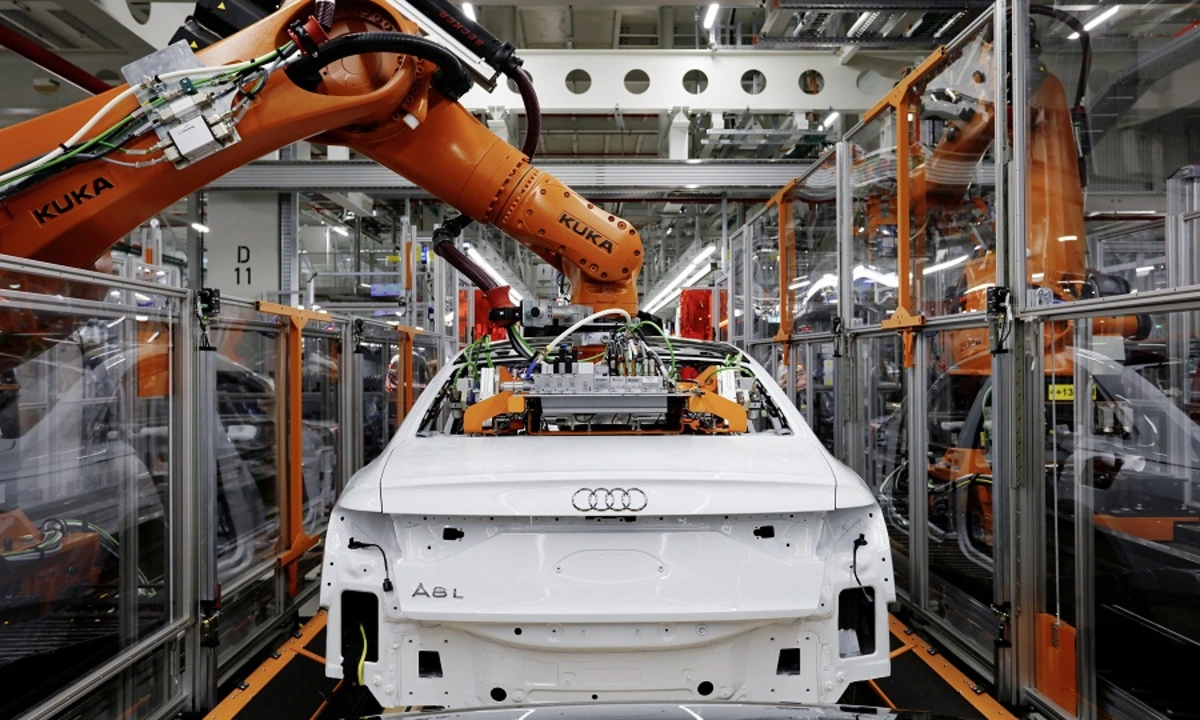
Where are the automotive industries located in Germany?
Introduction to Germany's Automotive Industry
Germany is a global powerhouse when it comes to the automotive industry, boasting a rich history and a strong presence in the global market. With leading car manufacturers such as Volkswagen, BMW, and Mercedes-Benz, it's no wonder that the country is often referred to as the "birthplace of the automobile." In this article, we will explore the different regions within Germany where the automotive industry thrives, highlighting the impact and contribution of each area to the country's overall automotive sector.
The Heart of the Automotive Industry: Baden-Württemberg
Baden-Württemberg, located in the southwest of Germany, is considered the heart of the country's automotive industry. Home to major car manufacturers such as Mercedes-Benz and Porsche, as well as numerous automotive suppliers and engineering companies, this region plays a crucial role in Germany's automotive ecosystem. Stuttgart, the capital city of Baden-Württemberg, is known as the "cradle of the automobile" and hosts the headquarters of both Mercedes-Benz and Porsche. Additionally, the region is known for its strong focus on research and development, with several universities and research institutes contributing to the industry's continued growth and innovation.
Bavaria: The Land of Luxury Cars
Bavaria, a federal state in southeastern Germany, is another prominent player in the country's automotive landscape. Known for its luxury car manufacturers, Bavaria is home to the headquarters of BMW in Munich, as well as Audi in Ingolstadt. The region also boasts a strong network of automotive suppliers and engineering companies, creating a comprehensive ecosystem for the production of high-quality vehicles. Bavaria's focus on innovation and cutting-edge technology has led to a reputation for producing some of the world's most advanced and luxurious cars.
Lower Saxony: The Volkswagen Stronghold
Located in northwestern Germany, Lower Saxony is home to one of the world's largest car manufacturers, Volkswagen. With its headquarters in Wolfsburg, this region plays a significant role in Germany's automotive industry. Volkswagen's presence in Lower Saxony extends beyond Wolfsburg, with production sites in Emden, Hanover, and Salzgitter. The region is also home to numerous automotive suppliers and engineering companies, further strengthening its position as a key player in the national automotive sector.
Hesse: The Home of Opel
Opel, a German automobile manufacturer and a subsidiary of the French automaker Groupe PSA, has its headquarters in Rüsselsheim, a city in the federal state of Hesse. With a rich history dating back to 1862, Opel has become an integral part of Germany's automotive industry. In addition to its headquarters, Opel also has a research and development center in Rüsselsheim, as well as a production facility in Kaiserslautern. The presence of Opel and its associated suppliers and partners contribute to Hesse's role in the German automotive landscape.
Saxony: A Hub for Electric Vehicles
Situated in eastern Germany, Saxony has established itself as a hub for electric vehicle production. Volkswagen has invested heavily in its production facility in Zwickau, converting it into a dedicated electric vehicle production plant. Additionally, BMW has an engine production plant in Chemnitz and a manufacturing plant for the i-series electric vehicles in Leipzig. The presence of these major manufacturers, along with a growing network of suppliers and research institutions, has positioned Saxony as a key region for the development and production of electric vehicles in Germany.
Thuringia: The Home of Bosch
Thuringia, a state located in central Germany, is home to one of the world's leading automotive suppliers, Bosch. With a production site in Eisenach and a research and development center in Arnstadt, Bosch plays a significant role in the region's automotive industry. Thuringia is also home to other automotive suppliers and engineering companies, contributing to the overall strength of Germany's automotive sector.
North Rhine-Westphalia: A Diverse Automotive Landscape
North Rhine-Westphalia, the most populous state in Germany, offers a diverse automotive landscape with a mix of car manufacturers, suppliers, and research institutions. Ford has a production facility in Cologne, while numerous automotive suppliers and engineering companies are scattered throughout the region. The state is also home to several research and development centers, further enhancing its contribution to the German automotive industry.
Rheinland-Pfalz: A Strong Automotive Supplier Network
Another important region in Germany's automotive industry is Rheinland-Pfalz, which is home to a strong network of automotive suppliers and engineering companies. While the region does not host any major car manufacturers, its numerous suppliers contribute significantly to the overall strength of the country's automotive sector.
Saarland: A Small but Important Player
Although it is the smallest federal state in Germany, Saarland plays an important role in the country's automotive industry. Home to several automotive suppliers, as well as Ford's research and advanced engineering center in Saarlouis, Saarland is a valuable contributor to the overall German automotive ecosystem.
In conclusion, Germany's automotive industry is spread throughout the country, with each region contributing its unique strengths and expertise. From the luxury car manufacturers of Bavaria to the electric vehicle hubs of Saxony, Germany's automotive landscape is diverse and dynamic, reflecting the country's position as a global leader in the industry.
Write a comment